Recent developments confirm that NATO is in crisis.
Turkey is a NATO heavyweight which is allied with Iran and Russia.
The Pentagon’s policy of “encirclement” of Iran formulated in the wake of the 2003 Iraq War is defunct. Iran has good relations with neighbouring countries including Turkey, Iraq and Pakistan. All three countries have refused to collaborate with Washington.
Needless to say the North Atlantic Treaty Organization is in crisis. America can no no longer rely on its staunchest allies.
But this is just the tip of the iceberg.
What will be the outcome?
Towards a movement to Exit-NATO leaving the Pentagon to “pick up the pieces?
(Michel Chossudovsky, December 7, 2019). First published in March 2019
***
Reminiscent of World War I, shifting alliances and the structure of military coalitions are crucial determinants of history.
Today’s military alliances, including “cross-cutting coalitions” between “Great Powers” are equally dangerous, markedly different and exceedingly more complex than those pertaining to World War I. (i.e the confrontation between “The Triple Entente” and “the Triple Alliance”).
Contemporary developments point to a historical shift in the structure of military alliances which could contribute to weakening US hegemony in the Middle East as well as creating conditions which could lead to a breakup of the North Atlantic Treaty Organization (NATO).
NATO constitutes a formidable military force composed of 29 member states, which is largely controlled by the Pentagon. It is a military coalition and an instrument of modern warfare. It constitutes a threat to global security and World peace.
Divisions within the Atlantic Alliance could take the form of one or more member states deciding to “Exit NATO”. Inevitably an NATO-Exit movement would weaken the unfolding consensus imposed by our governments which at the this juncture in our history consists in threatening to wage a pre-emptive war against the Russian Federation.
***
In this article, we will largely be addressing a concrete case of a NATO member state’s intent to exit the Atlantic Alliance NATO, namely Turkey’s “NATO-Exit” and its evolving rapprochement with Russia as well as with Iran and China.
Turkey is contemplating a “NATO-Exit”, the implications of which are far-reaching. Military alliances are being redefined.
In turn, Turkey in Northern Syria is fighting against America’s proxy Kurdish forces, i.e. one NATO member state is fighting another NATO member state.
Russia’s stance in relation to Turkey’s military actions in Northern Syria is ambiguous. Russia is an ally of Syria, whose country has been invaded by Turkey, an ally of Russia.
From a broader military standpoint, Turkey is actively cooperating with Russia, which has recently pledged to ensure Turkey’s security. “Moscow underscores that Turkey can calmly withdraw from NATO, and after doing so Ankara will have guarantees that it will not face any threat [from US-NATO] in terms of ensuring its own security,” (According to statement of Turkish Air Force Major-general Beyazit Karatas (ret))
Moreover, Ankara will be acquiring in 2020 Russia’s state of the art S-400 air defense system while de facto opting out from the integrated US-NATO-Israel air defense system. The S-400 deal is said to have caused “concern” “because Turkey is a member of NATO and the [S-400] system cannot be integrated into NATO’s military architecture”.
Russia’s S-400 Triumf (NATO reporting name: SA-21 Growler) is the latest long-range antiaircraft missile system that went into service in 2007. It is designed to destroy aircraft, cruise and ballistic missiles, including medium-range missiles, and surface targets. The S-400 can engage targets at a distance of 400 kilometers and at an altitude of up to 30 kilometers. (Tass, December 29, 2017)
What does this mean?
Has NATO’s “heavyweight” (in terms of its conventional forces) namely Turkey chosen to exit the Atlantic Alliance? Or is Turkey involved in an alliance of convenience with Russia while sustaining its links with NATO and the Pentagon?
The Atlantic Alliance is potentially in shatters. Will this lead to a NATO Exit movement with other NATO member states following suit?
Moscow’s intent in this regard, through diplomatic channels is to build upon bilateral relations with selected EU-NATO member states. The objective is to contribute to NATO “military deescalation” on Russia’s Western frontier.
Apart from Turkey, several EU countries including Germany, Italy, Greece (which has established defense ties with Russia) as well as Bulgaria could contemplate 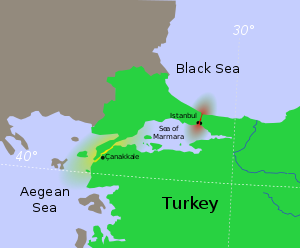 a NATO-Exit.
a NATO-Exit.
Turkey’s “Rapprochement” with Russia is strategic. While playing a key role in the Middle East, Turkey also controls naval access to the Black Sea through the Dardanelles and the Bosphorus. (see image right)
In other words, Turkey’s withdrawal from NATO would have an immediate impact on NATO’s land and naval deployments in the Black Sea basin, which in turn would affect NATO military capabilities on Russia’s doorstep in Eastern Europe, The Baltic States and the Balkans.
Needless to say, the Moscow-Ankara alliance facilitates the movement of Russian and Chinese naval forces to and from the Black Sea to the Mediterranean via the Bosphorus.
Turkey’s realignment is not limited to Russia it also includes Iran as well as Pakistan, which is in the process of severing its military ties with the US, while extending its trade and investment relations with China. Pakistan as well as India are full members of the Shanghai Cooperation Agreement (SCO).
The broader structure of military as well trade/ investment alliances must also be addressed, including maritime routes and pipeline corridors.
US Influence and Hegemony in the Broader Middle East
These geopolitical shifts have served to weaken U.S. influence in the Middle East, Central Asia and South Asia.
Turkey has an alliance of convenience with Iran. And Iran in turn is now supported by a powerful China-Russia block, which includes military cooperation, strategic pipelines as well extensive trade and investment agreements.
In turn, the unity of Saudi Arabia and the Gulf States is now in jeopardy, with Qatar, Oman and Kuwait building an alliance with Iran (as well as Turkey), to the detriment of Saudi Arabia and the UAE.
Saudi Arabia’s economic blockade directed against Qatar has created a rift in geopolitical alliances which has served to weaken the US in the Persian Gulf.
The Gulf Cooperation Council (GCC) is profoundly divided, with the UAE and Bahrain siding with Saudi Arabia against Qatar. In turn Qatar has the support of Oman and Kuwait. Needless to say, the GCC which until recently was America’s staunchest Middle East ally against Iran is in total disarray.
U.S. Central Command Military Base in Qatar
While Turkey is deploying troops in Qatar, it has also established the Tariq bin Ziyad military base in Qatar (in cooperation with the Qatari Ministry of Defense) under an agreement signed in 2014.
The Qatar based Al Udeid US military facility is the largest in the Middle East. Under USCentCom with headquarters in Tampa, Florida, Al Udeid hosts CentCom’s “forward headquarters” of all US military operations in the entire Middle East-Central Asian region.
Al Udeid –which houses some 10,000 US military personnel–, has played a strategic role in the ongoing conduct of US air operations against Afghanistan, Iraq, and Syria.
There is however a fundamental contradiction: America’s largest military base in the Middle East which hosts USCentCom is at present located in a country which is firmly aligned with Iran (i.e. an enemy of America). Moreover, Qatar’s main partners in the oil and gas industry including pipelines are Iran and Turkey. In turn, both Russia and China are actively involved in the Qatari oil and gas industry.
In response to Qatar’s rapprochement with Iran, the Pentagon has already envisaged moving its Central Command forward headquarters at the Al Udeid Air Force base (image left) to the 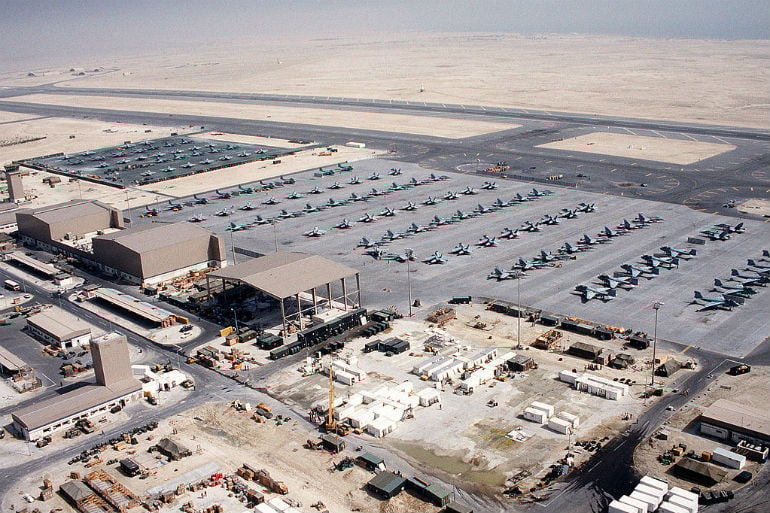 Prince Sultan Air Force base in central Saudi Arabia, 80 km south of Riyadh.
Prince Sultan Air Force base in central Saudi Arabia, 80 km south of Riyadh.
The structure of military alliances pertaining to Qatar are in this regard strategic.
Why? Because Qatar is a Geopolitical Hot Spot, largely attributable to its extensive maritime reserves in natural gas which it shares with Iran.
Iran and Qatar cooperate actively in the extraction of maritime natural gas under a joint Qatar-Iran ownership structure. These maritime gas fields are strategic, they constitute the World’s largest maritime gas reserves located in the Persian Gulf. (For further details, see Michel Chossudovsky, Middle East and Asia Geopolitical Alliances, Global Research, September 17, 2017)
In March 2018, Washington demanded that Qatar’s Al Jazeera News agency register in the U.S. as a “Foreign Agent” intimating that Doha has an “alliance” with enemies of America, including Iran and Russia.
Is this not a prelude to “Qatar-Gate” under the helm of Trump’s newly instated “war cabinet” (with Pompeo taking over from Tillerson at the State Department)?
In November 2017, Qatar’s Foreign Minister Sheikh Mohammed bin Abdulrahman Al Thani intimated during a visit to Washington that “Qatar does not rule out the possibility of a Saudi-led military operation against it”. While this option is unlikely, a “regime change” in Doha sponsored by the US and its Saudi ally is a distinct possibility.
The Incirlik Air Force Base in Southern Turkey
Meanwhile, the Pentagon is envisaging moving US Air Force facilities and personnel out of the Incirlik base in southern Turkey:
Earlier in March, Johnny Michael, the spokesperson for the US European Command (EUCOM), denied “speculative” reports that the US military reduced its operations at Incirlik base, adding that all military activities continued normally.
A day before Michael’s remarks, a Wall Street Journal report suggested that the US “sharply reduced” combat operations at the airbase and was considering permanent cutbacks there. (Al Jazeera, March 26, 2018)
Concluding Remarks: With NATO in shambles, America’s “war hawks” do not have a leg to stand on.
The alliance between Washington and Ankara is in crisis. NATO is in crisis. In turn, a Turkey NATO-Exit could potentially destabilize NATO.
We are at a dangerous crossroads. The US-NATO military agenda threatens the future of humanity.
How to reverse the tide of war? What concrete actions should be taken?
“NATO-Exit” could become a rallying call, a movement which could spread across the European landscape.
Both the European and North American anti-war movements should concretely focus their grassroots campaign on country-based “NATO-Exit” with a view to breaking the structure of military alliances required by Washington to sustain its global military agenda.
No easy task. This movement will not emanate from the governments. Most of the heads of State and heads of government of NATO member countries have been coopted.
Moreover, many of the West’s civil society organizations and NGOs (financed by corporate foundations) are tacitly supportive of US-NATO “humanitarian wars”.
What this means is that the anti-war movement has to be rebuilt.
The original source of this article is Global Research
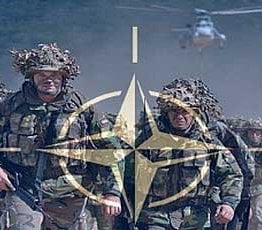
 a NATO-Exit.
a NATO-Exit. Prince Sultan Air Force base in central Saudi Arabia, 80 km south of Riyadh.
Prince Sultan Air Force base in central Saudi Arabia, 80 km south of Riyadh.



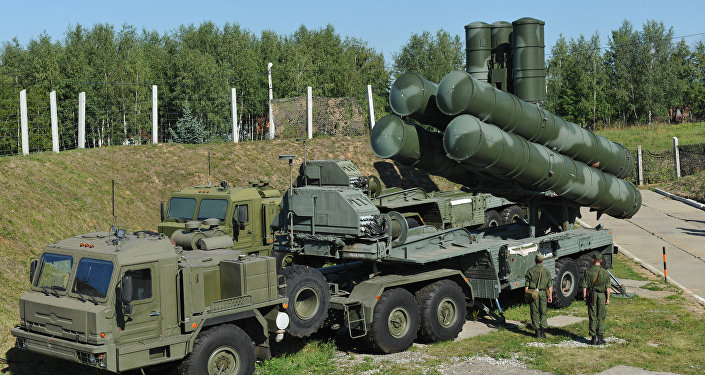
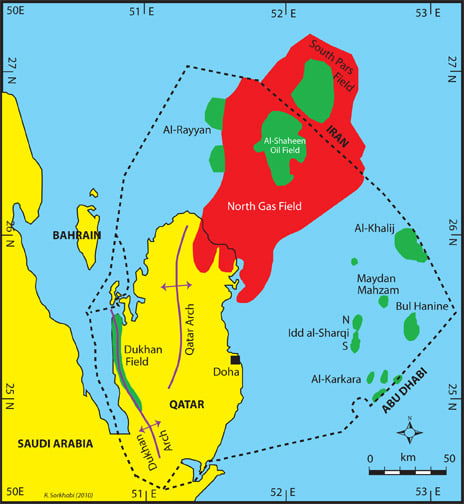


/https://www.niagarafallsreview.ca/content/dam/thestar/news/canada/2021/09/25/huawei-executive-meng-wanzhou-receives-warm-welcome-upon-return-to-china/_1_meng_wanzhou_2.jpg)













No comments:
Post a Comment
Note: Only a member of this blog may post a comment.